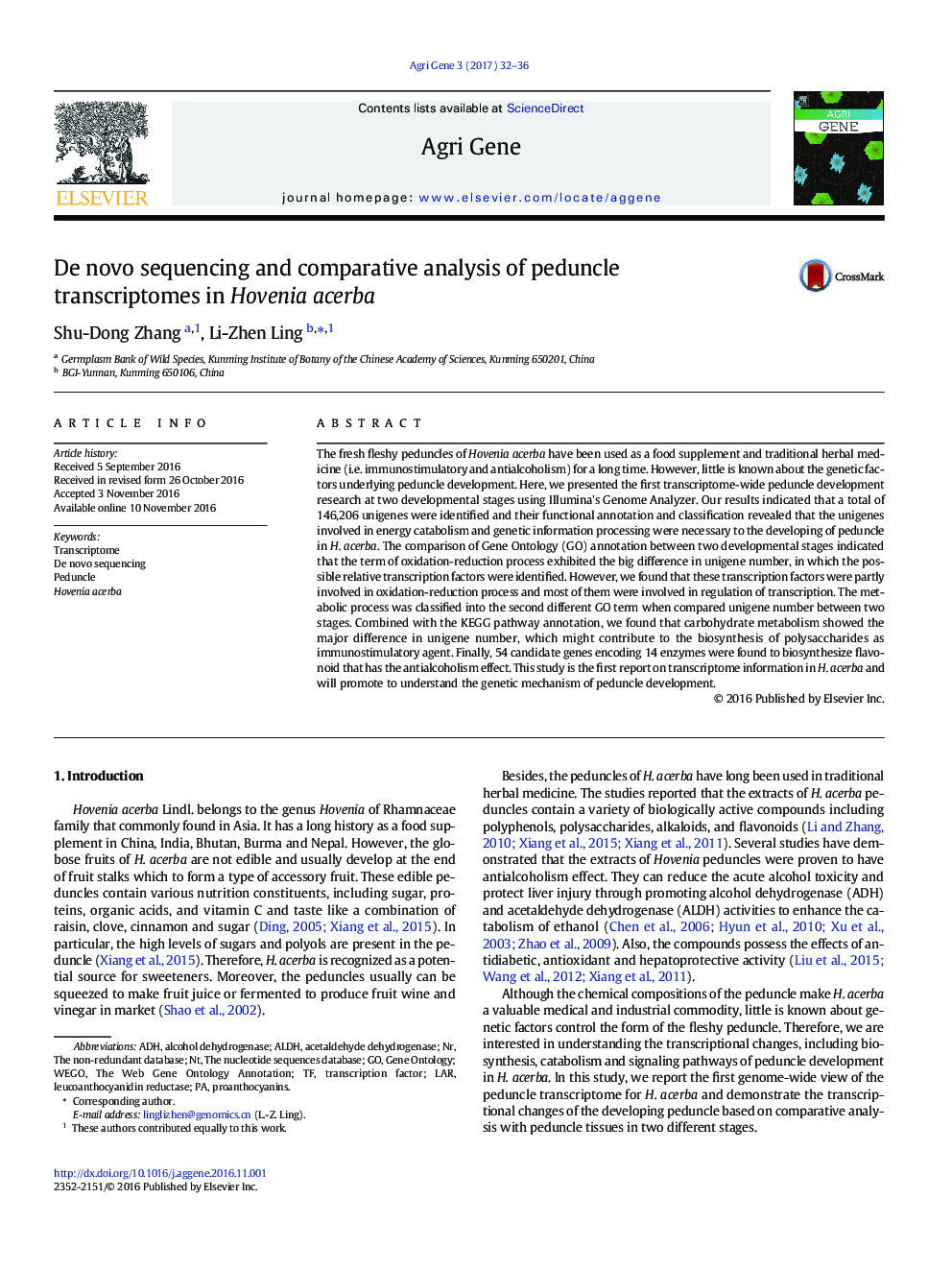| Article ID | Journal | Published Year | Pages | File Type |
|---|---|---|---|---|
| 5588863 | Agri Gene | 2017 | 5 Pages |
Abstract
The fresh fleshy peduncles of Hovenia acerba have been used as a food supplement and traditional herbal medicine (i.e. immunostimulatory and antialcoholism) for a long time. However, little is known about the genetic factors underlying peduncle development. Here, we presented the first transcriptome-wide peduncle development research at two developmental stages using Illumina's Genome Analyzer. Our results indicated that a total of 146,206 unigenes were identified and their functional annotation and classification revealed that the unigenes involved in energy catabolism and genetic information processing were necessary to the developing of peduncle in H. acerba. The comparison of Gene Ontology (GO) annotation between two developmental stages indicated that the term of oxidation-reduction process exhibited the big difference in unigene number, in which the possible relative transcription factors were identified. However, we found that these transcription factors were partly involved in oxidation-reduction process and most of them were involved in regulation of transcription. The metabolic process was classified into the second different GO term when compared unigene number between two stages. Combined with the KEGG pathway annotation, we found that carbohydrate metabolism showed the major difference in unigene number, which might contribute to the biosynthesis of polysaccharides as immunostimulatory agent. Finally, 54 candidate genes encoding 14 enzymes were found to biosynthesize flavonoid that has the antialcoholism effect. This study is the first report on transcriptome information in H. acerba and will promote to understand the genetic mechanism of peduncle development.
Related Topics
Life Sciences
Agricultural and Biological Sciences
Animal Science and Zoology
Authors
Shu-Dong Zhang, Li-Zhen Ling,
